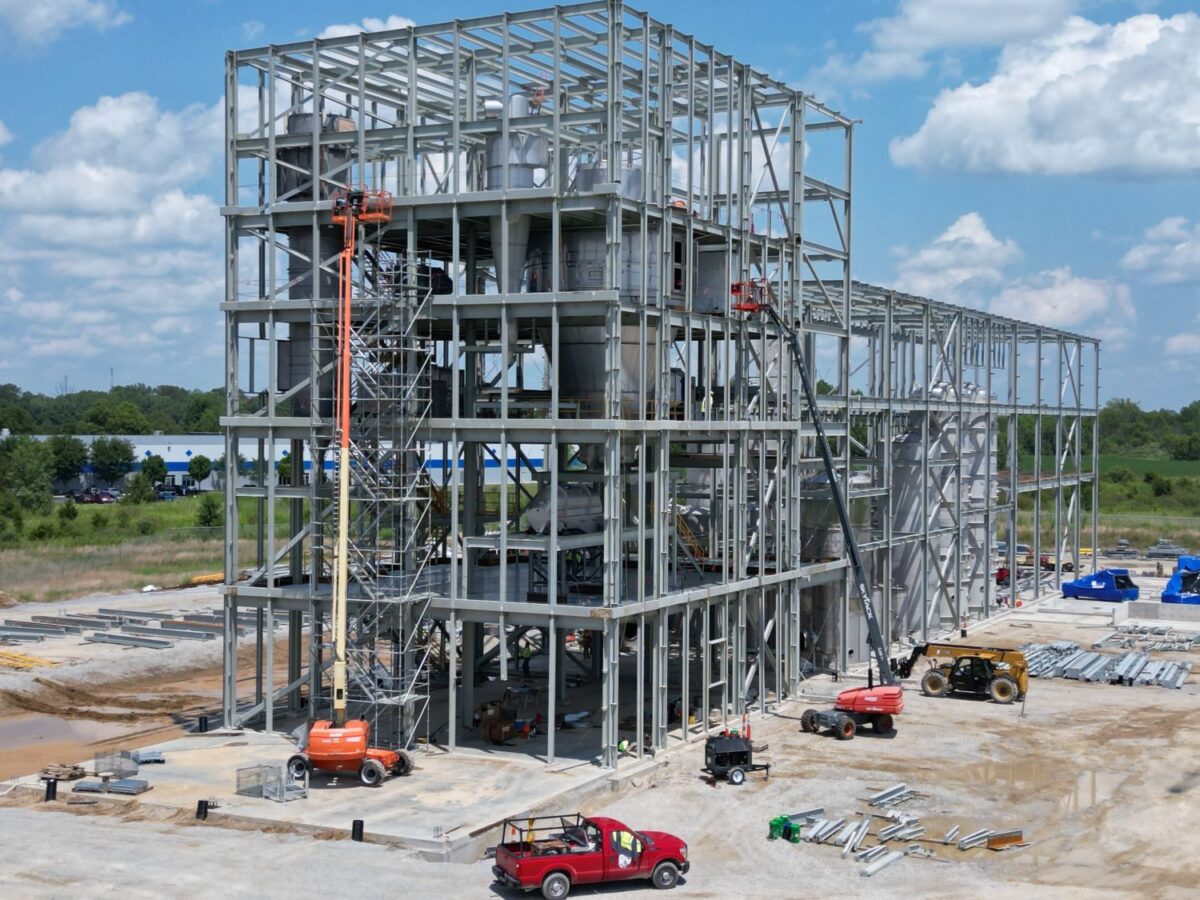A company building a plant in Richmond to make proteins for food, chemicals and industrial products announced it has raised the capital needed to complete construction.
Liberation Labs closed a convertible note with $31.5 million in new capital, which, combined with $19 million of insider bridge notes raised during 2024, brings the total raised in its $75 million convertible note round to $50.5 million, according to a Jan. 30 news release.
The plant, on a 36-acre parcel along Gaar Jackson Road in Midwest Industrial Park, is to be the first purpose-built commercial precision fermentation plant in the United States.
New capital came from NEOM Investment Fund, Galloway Limited and Meach Cove Capital, as well as from existing funders, including Agronomics, New Agrarian Capital and Siddhi Capital.
“The strong support from both existing and new investors is validation of our team, technology and go-to-market strategy,” said Mark Warner, Liberation Labs’ founder and CEO, in the release. “We look forward to completing construction of our facility, starting up operations in 2025 and filling a crucial supply gap for biomanufacturing in the U.S. market.”
Liberation Labs officials say they’re in the late stages of construction. The plant will have a capacity of 600,000 liters and a fully dedicated downstream process.
Workers will produce a range of bio-based materials, including building block ingredients for food, chemicals and other industrial products at a scale and cost that will fill a pressing need among both new and established consumer packaged goods companies and other industrial manufacturers, the release said.
When the company’s plans were announced in January 2023, Warner said in a news release shared by Economic Development Corp. of Wayne County that its three needs – sugar, power and a workforce experienced in manufacturing – could be found in Richmond.
“Liberation Labs is developing state-of-the-art fermentation infrastructure to transform the world’s existing fermentation capacity,” said Jim Mellon, director of Agronomics, in the release. “This will help build a future where precision fermentation proteins reach the industrial scale needed to meet growing demand in the U.S. and across the world. This novel approach has never previously been attempted. The completion of this significant funding raise showcases the consistent and growing demand from startups, large multinational corporations and governments alike and is testament to the strength and successful execution of the team led by Mark Warner.”
Combined with other public sector awards and loan guarantees, Liberation Labs has raised a total of $125.5 million in deployable capital. The new funding brings the total private capital raised to $71.5 million, the release said.
In the 2023 announcement, Liberation Labs officials said Wayne County offered tremendous logistical opportunities, including a shovel-ready site with necessary utility capacity; proximity to Interstate 70, the Norfolk Southern mainline and three regional airports for shipping and logistics; proximity to cost-advantaged carbon feedstocks; a significant percentage of baseload power to the facility being clean, solar energy; and proximity to three large metropolitan areas, providing adequate qualified labor.
To help with recruitment, Wayne County and Indiana have provided Liberation Labs with tax credits, grants, utility offsets, workforce-related incentives and discounts on the land purchase.
In addition, Liberation Labs secured equipment financing of $30 million and a U.S. Department of Agriculture Loan Guarantee of $25 million.
Liberation Labs also received $1.39 million from U.S. Department of Defense to conduct a detailed engineering and market analysis for adding a full flexible-use, commercial-scale 4,000,000-liter bioindustrial manufacturing facility adjacent to its Richmond plant, the release said. Upon successful completion of the prototype assessment and planning phase, Liberation Labs might be selected to advance to the prototype build phase. That would provide up to $100 million for building new facilities or expanding current facilities for bioindustrial manufacturing.
A version of this article appeared in the February 12 2025 print edition of the Western Wayne News.

